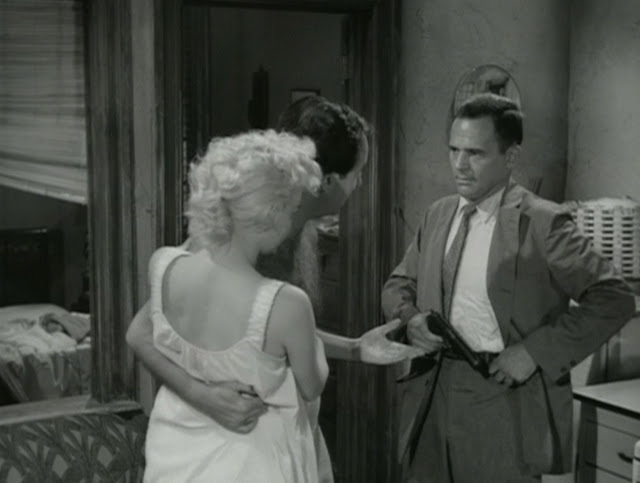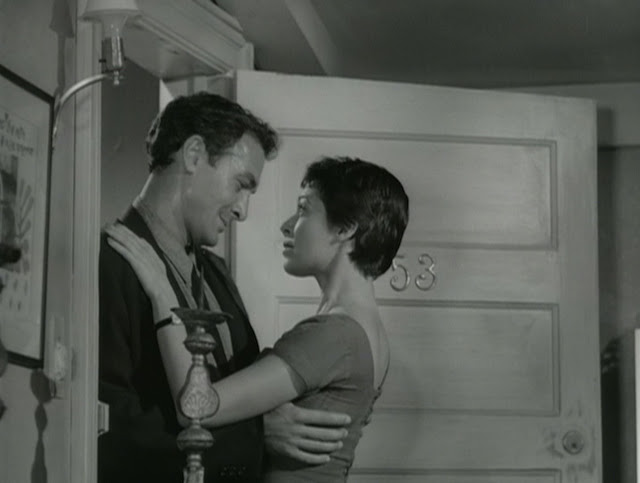![]()
 on 2/14/2022, 6:34 pm
on 2/14/2022, 6:34 pm

Robert Loggia plays Steve Carelli, the detective in charge of investigating these killings that seem to exist only within the universe of the detective bureau. There are no newspaper headlines, no panic in the streets, no rallying cry from a concerned public. It’s all business as usual in the churning machine of the modern city, as the ambivalent public goes about its business. While the other cops in the movie are just punching the clock, Carelli takes the murders personally and is neurotically consumed by the weight of his responsibility. Yet he has little in common with Barry Fitzgerald or Don Taylor in The Naked City. Carelli doesn’t care about reestablishing public order or serving his community--he just wants out of the spotlight. He needs to end the murder spree so that he can return to his comfortably humdrum life of impending marriage, evening highballs, and dancing the cop dance with petty crooks.

Women play an important part in this film. Ellen Parker is Carelli’s fiancé Teddy, a deaf-mute who, despite her handicap, is the most well-adjusted character in Cop Hater. She serves no greater purpose than to be the bright spot in Carelli’s life, and the stereotypical cop’s girl who keeps his motor revving and helps him stave off despair.

Shirley Ballard plays Alice, the wife of Carelli’s partner. In the majority of her scenes Ballard is only semi-dressed; her sturdy frame and severe features are the stuff of a Robert Crumb wet dream. Alice is a bundle of clichés, but she’s the most interesting character in the film: a cop’s wife who regrets her choices, who is still young and attractive enough to go out, yet is frustrated by the irregular schedule of her detective husband. Alice is unsatisfied and unhappy, and Ballard’s Amazonian screen persona is perfect for a cooped up cop’s wife. (It is difficult not to notice the similarity between Cop Hater and Basic Instinct in the still shown below.)

The fifties was a transition period for screen acting styles, and Cop Hater benefits greatly from this evolution. Loggia, a native New Yorker, is relaxed in his environment and at ease with the camera. His method-based approach is evident at the film’s climax, as he practically foams at the mouth while beating a confession out of the killer. His violent “Cop hater, hater, cop hater!” smells a lot like Brando. The cast is rounded out with New York actors, including a sweaty, frantic Vincent Gardenia (Moonstruck, among others), and a young, laconic (and soon to be iconic) Jerry Orbach. They give the seedy lower Manhattan atmosphere of Cop Hater a solid boost.

Cop Hater is part police procedural, part drive-in cheesecake, and part late-show mystery. It’s lifted by strong performances from a cast of ambitious up-and-comers, an overarching sense of oppression and gloom; and in spite of its 1958 release date it is steeped in the noir style. If nothing else it takes itself seriously--and while certain B-movie tropes are unavoidable, this film never feels like camp.
Responses